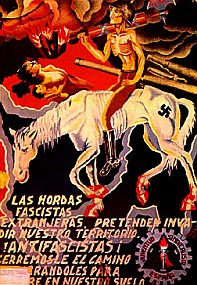Advertisement
If you have a new account but are having problems posting or verifying your account, please email us on hello@boards.ie for help. Thanks :)
Hello all! Please ensure that you are posting a new thread or question in the appropriate forum. The Feedback forum is overwhelmed with questions that are having to be moved elsewhere. If you need help to verify your account contact hello@boards.ie
Hi there,
There is an issue with role permissions that is being worked on at the moment.
If you are having trouble with access or permissions on regional forums please post here to get access: https://www.boards.ie/discussion/2058365403/you-do-not-have-permission-for-that#latest
There is an issue with role permissions that is being worked on at the moment.
If you are having trouble with access or permissions on regional forums please post here to get access: https://www.boards.ie/discussion/2058365403/you-do-not-have-permission-for-that#latest
(Irish) Socialism & Marxism versus the (Irish) Catholic Church & Jack Murphy TD
-
20-07-2011 7:59am#1
Comments
-
-
-
-
-
-
Advertisement
-
-
-
-
-
-
Advertisement
-
-
-
-
-
-
-
-
-
-
-
Advertisement
-
-
-
-
-
-
-
-
-
-
Advertisement
-
-
-
-
-
-
-
Advertisement
-
-
-
-
-
-
Advertisement
Advertisement

 In 1930, in her capacity as secretary of the 'Friends of Soviet Russia', she travelled to Russia. On her return to Ireland she became Editor of the Republican File, a Republican Socialist journal, following the suppression of An Phoblacht and jailing of Frank Ryan. She became involved in the First National Aid Association which supported the dependents of Republican prisoners and gave continuous support to the Women’s Prisoners' Defence League. In January 1933 Hanna was jailed when she travelled to Newry, County Downspeaking on behalf of republican prisoners. She was arrested and held for 15 days in Armagh Jail as she defied an order banning from entering the Northern counties.
In 1930, in her capacity as secretary of the 'Friends of Soviet Russia', she travelled to Russia. On her return to Ireland she became Editor of the Republican File, a Republican Socialist journal, following the suppression of An Phoblacht and jailing of Frank Ryan. She became involved in the First National Aid Association which supported the dependents of Republican prisoners and gave continuous support to the Women’s Prisoners' Defence League. In January 1933 Hanna was jailed when she travelled to Newry, County Downspeaking on behalf of republican prisoners. She was arrested and held for 15 days in Armagh Jail as she defied an order banning from entering the Northern counties.